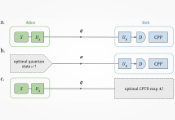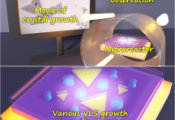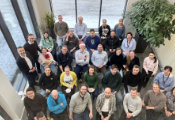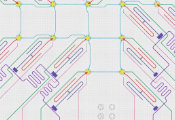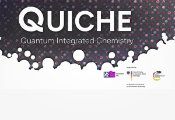Sanger Institute Collaboration Using Quantum Computing to Tackle Complex Genomic Challenges
July 16, 2025 - A collaboration between the Wellcome Sanger Institute and the Universities of Oxford, Cambridge and Melbourne, with Kyiv Academic University as an additional partner, has progressed into the final stage of the Q4Bio Challenge, a competitive research programme funded by Wellcome Leap.
The team has been awarded $2 million to enter Phase 3 of the programme, which is designed to harness the power of quantum computing for the benefit of human health.
The Q4Bio Challenge aims to accelerate the development of quantum computing technologies by encouraging fast-paced computational innovation in order to solve important health challenges.1 Of the 12 teams that entered Phase 1, just six are now moving into Phase 3 after two competitive elimination rounds.2
The overall goal of the team’s project is to perform a range of genomic processing tasks for the most complex and variable genomes and sequences – a task that can go beyond the capabilities of current classical computers. The work includes assembling genomes and pangenomes from DNA sequences, as well as matching specific DNA sequences into reference genomes and pangenomes – which is key for studying genetic variation. Pangenomes are a representation of many different genome sequences that capture the genetic diversity in a population.3 By using quantum computers, the researchers aim to significantly reduce the time, and complexity of genomic information processing tasks.
As part of this final phase, the team also aims to encode and process an entire genome in a quantum computer – a potential world-first. The chosen genome is the bacteriophage PhiX174. The sequencing of this bacteriophage’s genome for the first time famously earned Fred Sanger his second Nobel Prize in Chemistry in 1980. Therefore, attempting to reliably encode its genome on a quantum computer is a significant benchmark for innovation in genomics and will mark a major milestone in both genomic science and quantum technology.


